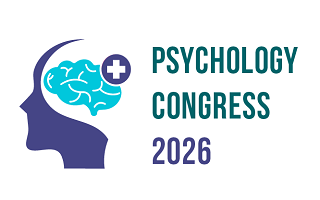3rd International Congress on
Psychology & Behavioral Sciences
March 26-27, 2026 | Osaka, Japan

Address: 1 Chome-9-15 Shinkitano, Yodogawa Ward, Osaka, 532-0025, Japan.
Psychology Congress 2026

Florida Gulf Coast University, USA
Abstract:
Current research indicates that jealousy develops early in life. Beginning in the mid-1990s Sybil Hart described jealousy in infants in the context of experiencing the loss of maternal attention to a social rival. Other researchers have replicated her study and examined variables such as temperament and physiology. However, the behavioral coding scheme used to measure jealousy in infants has not been focused on, and it has weaknesses that need to be addressed. The language describing the behavioral codes was not always clear, which could result in unreliable interpretations of infant responses to the rival. This study aims to create a more accurate observational measure of jealousy in infants. The behavioral coding scheme has been revised based on consideration of extant literature and the coders’ thorough observation of previous coding of data. From a dataset collected by the last two authors that included 140 infants between the ages of 5 and 18 months, a sub-sample of participants around 12 months old were selected to be recoded using the revised coding scheme. A pilot study primarily focused on addressing overlapping behaviors when coding proximity of the infant in relation to the mother revealed that replacing proximity with closeness and head direction led to higher levels of jealousy. We expect that the additional changes and clearer conceptualization of coding categories will not only show an increase in jealousy but also result in higher inter-rater reliability and accuracy. Additionally, we hypothesize that protest and self-regulatory behaviors will predict jealousy in infants. The findings of this study will strengthen conclusions about early social-emotional development while also providing a consistent framework for future studies to build from.
Biography:
Abigail Gonzalez is graduating with her Bachelor of Arts in Psychology. She is a research assistant at Florida Gulf Coast University and has recently presented her ongoing work at the Northeastern Evolutionary Psychology Conference and the Southeastern Psychological Association.
